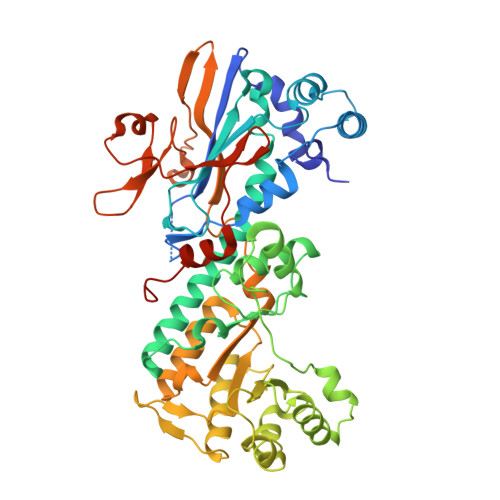Fragment-based design of 3-aminopyridine-derived amides as potent inhibitors of human nicotinamide phosphoribosyltransferase (NAMPT).
Dragovich, P.S., Zhao, G., Baumeister, T., Bravo, B., Giannetti, A.M., Ho, Y.C., Hua, R., Li, G., Liang, X., Ma, X., O'Brien, T., Oh, A., Skelton, N.J., Wang, C., Wang, W., Wang, Y., Xiao, Y., Yuen, P.W., Zak, M., Zhao, Q., Zheng, X.(2014) Bioorg Med Chem Lett 24: 954-962
- PubMed: 24433859
- DOI: https://doi.org/10.1016/j.bmcl.2013.12.062
- Primary Citation of Related Structures:
4N9B, 4N9C, 4N9D, 4N9E - PubMed Abstract:
The fragment-based identification of two novel and potent biochemical inhibitors of the nicotinamide phosphoribosyltransferase (NAMPT) enzyme is described. These compounds (51 and 63) incorporate an amide moiety derived from 3-aminopyridine, and are thus structurally distinct from other known anti-NAMPT agents. Each exhibits potent inhibition of NAMPT biochemical activity (IC50=19 and 15 nM, respectively) as well as robust antiproliferative properties in A2780 cell culture experiments (IC50=121 and 99 nM, respectively). However, additional biological studies indicate that only inhibitor 51 exerts its A2780 cell culture effects via a NAMPT-mediated mechanism. The crystal structures of both 51 and 63 in complex with NAMPT are also independently described.
Organizational Affiliation:
Genentech, Inc., 1 DNA Way, South San Francisco, CA 94080, USA. Electronic address: dragovich.peter@gene.com.
















